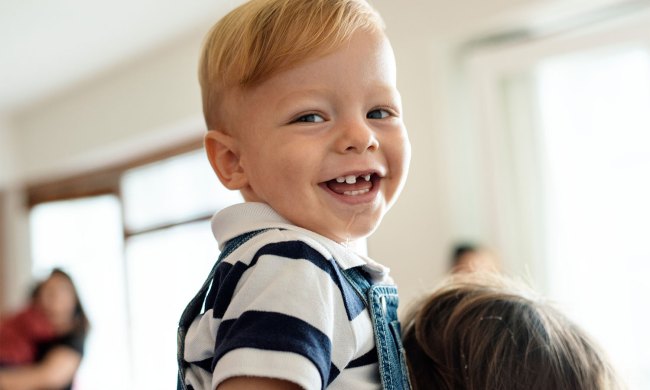Are you ready to stop changing diapers? Do you feel determined to potty-train your child once and for all? Great! But is your child ready? Maybe not — and until they are, you can’t really force potty-training on them. The good news is that there are methods to help ease your toddler into the idea of using the potty. Books are the ideal way to introduce your little one to the topic of potty-training or to give kids who are almost there a gentle nudge in the right direction.
Get more than one book
Books are an incredible way to introduce young children to new concepts. They help them understand what is going on and answer many of the questions that kids may have. You’ve used books to teach your child about colors, letters, animals, and things around their home. Why not use them to get your toddler excited about potty-training?

We recommend using more than one book, and this is for a couple of reasons. First, kids connect better with some books or characters. You’ll notice that your child will be inclined to read one book more than others. Offering them a few book options is important so they don’t feel like you’re pushing the idea on them.
Second, variety always helps. You don’t want your child to get bored of reading the same book over and over again — especially when it comes to a topic that could be sensitive. With a variety of books, you can provide kids with different storylines and scenarios that keep them entertained and show how most kids go through potty-training.
Teach kids that accidents happen
One of the reasons your child may be reluctant to start potty-training is insecurity. Many children feel pressured to “perform” and don’t quite understand that accidents happen. Though this may seem obvious to you, the reality is that young children want to please their parents at all times. At this age, you’re still their hero, and your little one hates the idea of disappointing you.
Find a potty-training book that shows kids that accidents happen, and that this is OK. After reading it, talk to your child about the story. Let them know that no one is able to acquire a new skill right away and that accidents occur along the way. Tell them that you will celebrate their efforts and that accidents are perfectly all right.
Encourage them to keep trying
Once your child knows that you expect accidents to happen, be sure to encourage them to keep trying. You’ll find that most potty-training books tell stories of characters who try several times and have numerous accidents, but they don’t give up. Remind your toddler that all they need is practice, and as long as they keep trying, success will come before they know it.

Besides teaching your toddler how to use the bathroom, this is a valuable life lesson that your child will always remember. It’s never too early to start teaching your child about perseverance, and potty-training is an excellent opportunity to introduce the concept.
Let them know that we all poop and pee
Use literature as an opportunity to remind your children that we all poop and pee. It’s normal for adults, kids, and even pets! If you’re comfortable with it, let your child see you use the toilet. Some parents find it awkward, while others are perfectly comfortable with this idea. Either way, our recommendation is that you find a book that discusses this and opens up the conversation naturally.
Why not read while you poop?
Teaching your child how to use the potty is all about balance. You don’t want to push so hard (pun intended!) that your child feels pressured and rejects the potty.
A good way to avoid making this a stressful situation is by offering your child other books to read while they sit in the toilet. Choose books that are unrelated to the topic and will help your toddler relax while they continue to try.
It’s a good idea to have a selection ready to go and keep it handy for the next time your little one needs to run to the bathroom. Even if they don’t make it in time, experts recommend sitting on the potty after the fact to get the body used to the feeling of using the toilet. If your child has a book to keep them entertained during that time, the training process will be much easier and relaxing for them.
Bribes do work, sometimes
You may find that many potty-training books talk about rewards for children once they successfully go to the bathroom. The reason they do this is simple: Because it works! If you choose to implement this method, it’s a good idea to find a book that talks about prizes. Use this opportunity to discuss possible rewards with your little one and figure out what would motivate them to use the potty.

For parents who prefer to avoid the reward method, there are many books who leave this idea out altogether and that still work wonders in terms of encouragement. Just be sure to read reviews before purchasing your books, to avoid confusing your child.
Teaching your child how to use the potty is a confidence-boosting milestone for many toddlers. The key is to avoid unnecessary pressure or stressors. Books are the ideal way to introduce the concept to little ones and an excellent encouragement for those toddlers who have already begun the process. You will soon see that with guidance and support, your child will be excited and proud to learn how to use the bathroom like a “big kid.”


